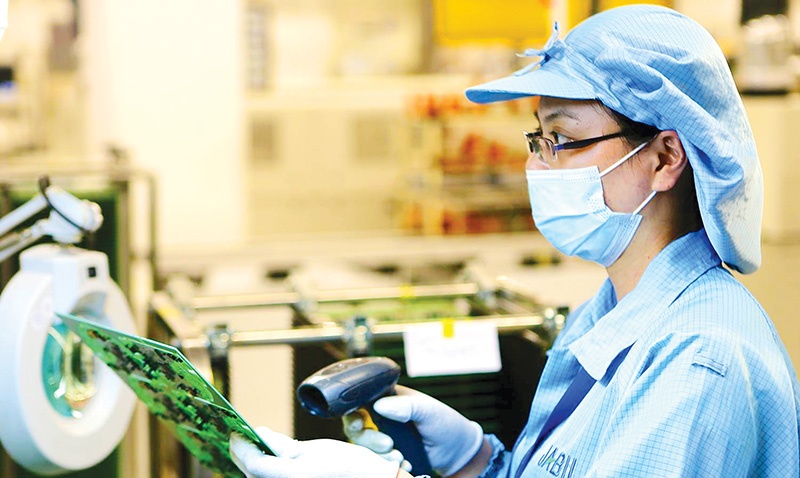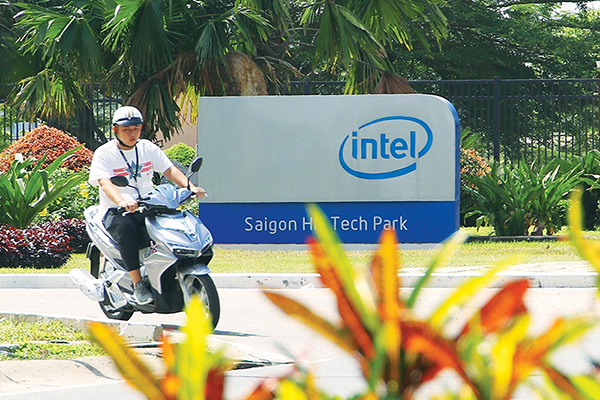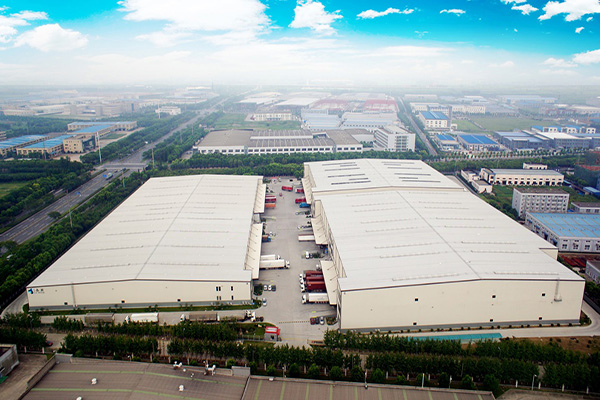| Some delayed ventures and plans can now move full steam ahead, Le Toan |
Restoring pre-pandemic visa policies should significantly contribute to the breakthrough of overseas investment in the country.
The Vietnamese government has decided to resume pre-pandemic visa issuance, allowing citizens of 13 countries – Germany, France, Italy, Spain, the United Kingdom, Denmark, Russia, Japan, South Korea, Norway, Finland, Belarus, and Sweden – to travel to Vietnam for 15 days without a visa.
Dinh Trong Dung, a Vietnamese overseas entrepreneur, is happy to be back in the home country without having to endure strict regulations, and can now carry out numerous business plans. “Following successes in Germany, I and my foreign partners intend to develop a beer manufacturing plant in the country. The pandemic has held up our plans for a few years, but this is now a good time for the project to welcome the resumption of tourism and services,” said Dung.
This is one of the thousands of cherished pent-up deals that foreign investors are setting eyes on in throughout Vietnam.
“Vietnam’s economy is forecast to grow beyond expectation in 2022 as the domestic demand rebounds and foreign direct investment inflows may climb up after the disruption caused by the Delta wave in 2021,” said John Campbell, associate director and head of Industrial Services at Savills Vietnam.
Although funding inflows continued to enter Vietnam since 2020, pandemic prevention measures and immigration restrictions caused many burdens. “The drop of mergers and acquisitions over the last two years was caused by the fact that foreign investors could not set foot in Vietnam to look for, negotiate, and sign contracts,” said Do Nhat Hoang, director general of the Ministry of Planning and Investment’s (MPI) Foreign Investment Agency.
Many groups faced the same set of issues. US semiconductor manufacturing company Amkor, for example, had wanted to invite foreign senior experts to work in Vietnam since last August to decide on developing a factory in the northern province of Bac Ninh. However, the difficult immigration regulations delayed the signing ceremony of the $1.6-billion project for several months.
Since then, Bac Ninh People’s Committee has approved the project’s environmental impact assessment report, and the new visa rules made last week are now a foundation for the investors to believe that the factory can start manufacturing on a massive scale from next year.
“Numerous Taiwanese investors are also glad of the visa policy from the Vietnamese government to carry out their investment decisions and plans,” said Le Tuan from the Vietnam Economic and Culture Office in Taipei.
Despite slowing down over the past two years, MPI Minister Nguyen Chi Dung explained that the overseas investment inflow outlook in 2022 and next years should grow rapidly. “Numerous large-scale and high-tech projects are planning to set foot in Vietnam,” said the minister.
At the recent meeting between the MPI and US-ASEAN Business Council, council vice chairman Michael Michalak confirmed Vietnam as a top destination of US investors in the near future. Specifically, Ford Vietnam is planning to raise factory capacity, while ExxonMobil is investing and expanding its projects in the country.
Last month, on the visit of the State President Nguyen Xuan Phuc to Singapore, the two countries’ businesses signed cooperation agreements worth $11 billion in total value.
Source: VIR




